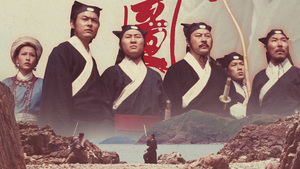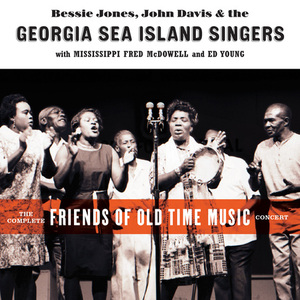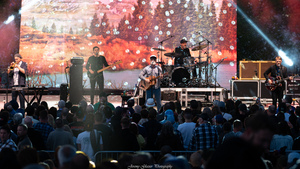Now I’m Really Angry, III
by David Lee Beowulf
By the 29th, I decided to just send lots of links to everyone
We had a few brief threads about Noam Chomsky, which brought to mind his book “Manufacturing Consent” containing his detailed analysis of how the United States’ “media” sold the people on the Viet Nam war. I also thought of David Halberstam’s “The Best and the Brightest” about the team of Ivy Leaguers who were convinced they could win in Viet Nam through the use of corporate management techniques.
I am truly amazed that those behind NATO (i.e., “us” and the U.K.) aren’t being more careful to not look like the “best and the brightest.” And why is it that CNN is, quite literally, “manufacturing consent”? What’s going to happen once the infantry is called in? During the Gulf War we had left-of-center Peter Arnot on CNN reporting from Baghdad, we had all sorts of news right from the lines during the buildup and attack, and plenty of pleas from the Iraqis that we stop bombing them, and lots and lots of “USA Out of Iraq” protests even though nearly the entire UN was behind the action; one might believe that Desert Storm was quite unpopular with the American people based on the news accounts and various speeches made by prominent punk rockers like Jello Biafra.
Judging from CNN and USA Today, it looks to me like the entire population of the United States backs a “United NATO” bombing Serbia into submission.
Excellent Links you should explore –
Today’s Papers in Slate. (Really good: cynical to the point of sarcasm, but right on the money.)
March 28 Madness
Russians volunteer to fight for Serb army By Marcus Warren in Moscow
RUSSIANS are signing up to serve alongside their Serb “brothers”, as many of their ancestors did in the 1870s. Then the common foe was the Ottoman Empire. Now it is Nato.
The war against the West that Russian nationalists always wanted to fight at home has broken out in the Balkans and many are now itching to join in. If they cannot do much to resist Nato planes over Serbia, they want to engage the enemy ground forces in Kosovo or Bosnia.
The commander of Russian forces in the Far East, Col-Gen Viktor Chechevatov, has offered to lead volunteers or regulars to fight the Western “aggressors”.
Russian television has shown pictures of rallies of would-be volunteers in cities such as Kaliningrad and Murmansk while in Moscow the recruits queued under Second World War posters bearing the slogan: “The Motherland Calls.”
========================
Then read this one from Russian newspaper It contains this gem:
In Vladivostok, crowds of up to 50 people twice protested outside the U.S. Consulate on Thursday, and similar demonstrations were held across Russia. Protesters waved signs reading “Hands off Yugoslavia” and “NATO is the world’s aggressor.” Susan Krause, public affairs officer at the U.S. Consulate in Vladivostok, said the reaction was expected.
“I think that given the situation, I’m not surprised,” Krause said. “The protests were coming from the far left and the far right.”
It is true that the left and the right were the most vocal. In Zhirinovsky’s headquarters, Alexander Gnezdilov, a member of the anti-Semitic Russian National Unity Party, showed up to see how the recruitment was going. Gnezdilov sported a lapel swastika (“It’s not a fascist swastika,” he insisted. “It’s a Slavic swastika.”) and spoke darkly of “the Jewish problem” in Russia.
March 28th NY Post:
YUGO HATREDS HIT HOME IN BIG APPLE By MARIA ALVAREZ
Hundreds of Serbs and Albanians clashed at a tense Midtown Manhattan demonstration planned as a peace protest yesterday.
New Yorkers who came out to protest U.S. airstrikes in Kosovo were stunned by the emotional showdown outside Grand Central Terminal, where Serbs and Albanians screamed in anger and spewed national pride instead of peace.
“I thought I was going to an anti-war demonstration,” said Julia Rapkin, 32. “I’m against the bombing, but I’m also critical of Milosevic and what he is doing in Kosovo. I think people are very confused here.”
Cops were at the ready with plastic handcuffs to arrest demonstrators and were vigilant in keeping pedestrians and curiosity seekers walking along the sidewalks.
Four Albanian teen-agers were arrested by undercover cops after one threw a bottle at Serbian protestors.
“This is what you do to me,” the teen cried. “They killed my family.”
The “Stop Bombing Yugoslavia” march from Grand Central to Union Square was organized by the International Action Center, an anti-war group. But peaceniks were in the minority yesterday.
On one side were more than 500 protesters – mostly Serbs and Greeks – who chanted “Albanians out of Kosovo” and held signs reading “President Clinton is a murderer.”
Across the street, several hundred Albanians waved Albanian and American flags and chanted “USA, USA, USA.” They booed and rattled police metal barriers as Serbs passed along the street.
Jasna Lucic, a 26-year-old Serb who lives in Manhattan, said, “It’s critical that we get to the truth, I’m not for Milosevic, but we shouldn’t give up Kosovo.”
Albanian Liri Marku, 39, made a special trip to the protest from Florida where he owns a hotel.
“The whole world knows that we are for freedom and against a dictatorship,” said Marku.
“Milosevic doesn’t want to give up Kosovo because it has all the natural resources and food. Belgrade could not survive without Kosovo.”
Good 28 march 1999 NYTimes Editorial:
The Superpower That Couldn’t Say No
By FAREED ZAKARIA
A hundred years ago the leading superpower of the day, Great Britain, sent troops into the Sudan. Its statesmen explained their decision thus: Britain’s global position rested on its empire in India. Access to India required a secure Suez Canal, which required that Egypt be safeguarded, which required that the upper Nile valley be controlled. So the Sudan was vital, you see.
Such was the convoluted logic of the Pax Britannica. Last week, the world got a look at the strategic spiral of the new Pax Americana.
NATO’s intervention in Kosovo is the logical next step – and there will be more – of a foreign policy in which one peripheral commitment creates another. America, already the guarantor of peace in Bosnia, will now find itself deeply involved in the future of the south Balkans, with its feuding states and ethnically mixed populations.
As a consequence of its bombing campaign, NATO has had to extend security assurances to a jittery Albania, Bulgaria, Macedonia, Slovenia and Romania. Meanwhile, our relations with the major powers deteriorate, the global financial system remains unsettled, and genuine threats in the Middle East and Northeast Asia are placed on hold. “We can only do one crisis at a time,” a White House official told me last week. Someone had better keep that from Saddam Hussein.
President Clinton put out a volley of explanations for the attack, hoping that if one does not convince, another will. First he claimed that American security and prosperity require keeping our major trading partners in Europe safe.
But for much of the last decade a bloody war has raged in the Balkans, while Western Europe has thrived. We have been constantly warned that instability in the former Yugoslavia would spill over, yet it has not. Indeed, the tragedy of Bosnia was that none of Europe’s major powers cared much what happened there.
If the Balkan conflict does spread this time it will be because NATO interfered – thus creating the problem the alliance is supposedly trying to solve. Over the last century the region’s wars have expanded only when major powers have got involved – most disastrously in 1914.
The most honest supporters of intervention admit that to be successful, bombing must be merely the beginning of a much bigger and wider campaign involving other countries in the region. Some advocate using Albania as a staging ground for NATO ground troops. Others recommend creating a 60,000-strong force in Macedonia. If all this seems farfetched, consider that if the Serbs continue their campaign in Kosovo, the United States will be faced with two options – appeasement or escalation. (It was this grim dilemma that pushed a reluctant Washington deeper and deeper into Vietnam.)
On the other hand, if Serbia does back down, NATO will have created a new state in the Balkans. Kosovo’s relations with its neighbors – including Macedonia, which has a mix of Albanians and Serbs, and Albania itself – will be tense. As the main sponsor of the new nation, America will have to assume some responsibility for its security. Russian ties to the Serbs are bound to strengthen. (Having been assured for the last three years that NATO is a defensive alliance, Russia is predictably furious to find it waging a war in the south Balkans.) Greece and Turkey are always spoiling for a fight anyway.
President Clinton says he wants to avoid the kind of mistakes that led to World War II. But in drawing outside powers into the Balkans, he is forming tangled alliances reminiscent of World War I. And one hopes Mr. Clinton understands that Slobodan Milosevic – who rules a moth-eaten, impoverished country that has not attacked its neighbors – is no Adolf Hitler. He is not even Saddam Hussein.
The President’s humanitarian case for NATO’s action is more compelling. Serb atrocities in Kosovo are real and gruesome. The United States is powerful enough that when it can do good it should – if the costs and risks seem reasonable. But in this case, NATO is entering a complex political situation without a clear objective or exit. In attacking a country for denying a province independence, it is inviting claims from a long list of victims – including Kurds, Tibetans, Kashmiris and Chechens, among others.
Mr. Clinton and his supporters wrongly framed the Kosovo debate as one between intervention and isolation. The real question is, what kinds of intervention should America engage in?
The Clinton Administration has tried nation-building in Somalia, democratization in Haiti and reintegration in Bosnia. Every one of these experiments has failed. Every one of these peripheral interventions was also unplanned, a reaction to a crisis. Surely the test of a world power is not only when it can say yes, but also when it can say no.
Meanwhile Washington’s relations with the major powers range from bad to worse. Nuclear arms reduction with Russia is in a deep freeze; relations with Japan are barely civil; the roller-coaster ride with China is on a sharp downswing. Thanks to European defections, the containment of both Iran and Iraq is wearing thin. After announcing last fall that the global economy was facing “its worst crisis in 50 years,” Mr. Clinton dropped the issue rather than tussle with the G-7. But thank goodness we’re bombing Belgrade!
Washington can pursue a careless foreign policy because it has power to waste. The United States towers over the world like no country ever has.
This gives America a unique window of opportunity. It could strengthen the basic foundations of global peace, expanding the open world economy and liberal order that the industrial states enjoy. Or it could keep up its efforts to put a lid on ethnic, religious and nationalist conflicts whenever they break out. This will be an unending task, since the world is not going to stop changing, and new groups will always make new claims to power.
Britain spent decades – and endless blood and treasure – stabilizing dozens of places like the Sudan. Once it left, the violence always began anew.
Great global power – no matter how benevolent – always arouses envy and resentment.
(John Dryden wrote in the 17th century, “When the chosen people grew too strong / The rightful cause at length became the wrong.”)
Washington should make sure that when it provokes international ire and opposition, it is doing so for good reasons. The tragedy of American diplomacy today is that it is incurring the costs of hegemony without getting the benefits.
Fareed Zakaria is a managing editor of Foreign Affairs and the author of “From Wealth to Power: The Unusual Origins of America’s World Role.’’
This is a snipet from the 27 March 1999 Los Angles Times as reported in today’s Slate (“Today’s Papers” ). I couldn’t find the reference in the LAT, but I chalk that up as my fault.
“All papers cite unconfirmed accounts that airstrikes escalated ethnic cleansing. The LAT reports that as many as 50 ethnic Albanians were executed in three separate incidents. The paper reports that mob rule prevails in the Kosovar capital. Terrorists bombed rows of Albanian-owned businesses and torched the warehouse of the Mother Theresa Society. The NYT cites reports that 15,000 to 20,000 civilians were put on a forced march by Serb forces. The WP offers refugee accounts of being driven from their homes by paramilitary units and forced to pay bribes for safe passage. The paper quotes one refugee: “The Serbs can’t fight NATO, so now they are after us.”
What I found interesting was the note that “Terrorists…. torched the warehouse of the Mother Theresa Society.” First of all, “terrorists”? Why are they labeled as “terrorists”? I would have thought they’d at least be “Serbian Policemen.” Kosovo is generally recognized as Islamic (ever since the Turks took it like 600 years ago). However, the Serbian Orthodox Church (i.e., the Eastern Orthodox Church) has many old churches and shrines in Kosovo. Now, the Eastern Orthodox Church has long been at odds with the Church of Rome (nearly a thousand years), especially over the doctrine of papal infallibility (Eastern Orthodox Church rejects it). Lately, that is, in the last thirty of so years, the Eastern Orthodox Church has been meeting on occasion with Rome in a spirit of ecumenism. HOWEVER, most of the Serbian clergy see this as a sign of apostasy and therefore conclude that Rome is trying to take them over.
Thusly, I wonder:
How on earth did a “Mother Theresa Society” get set up in Kosovo in the first place? In places like Calcutta, yeah, there’s a good amount of “toleration” of “harmless” nuns. But most Islamic countries (except maybe Bahrain) are pretty strict about non-State sanctified religions going public; that is, how would the Mother Theresa Society even have a “warehouse”? As it turns out, though, the Mother Theresa Society is a well-known humanitarian group in Kosovo. Recently the Pope met with the president of Iran, hmmm. What an excellent target for the Serbs… There are two wars, then, that the Serbs are in: one is against the Moslem “ethnic Albanians,” the second is against the Roman Catholics. And lest anyone forget, the “Russian Orthodox” church = Eastern Orthodox church, etc. The Serbs may think there’s a Rome-Mecca alliance out to get them. That could be REALLY interesting.
The way the Clinton Administration is demonizing Slobodon Milosevic (I just spelled that from memory, I wonder if it’s right?) and at the same time appealing for the Serbs to return to their peaceful ways is pretty weird. The Serbs never had peaceful ways. They LIKE war; were I a Serb “policeman” I’d find the bombs going off all around me damned exhilarating as I raged through a village in my quest to righteously “cleanse” my lawful homeland. Milosevic has absolutely nothing to lose in this conflict, again, he likes war. I think he likes war more than he would like simply presiding over a Greater Serbia, to die in battle would make him a saint. The peoples of the Balkans are crazy people, and they’re really hard to kill – the Nazis couldn’t do it.
Any bets on how long this will last? How about on how long before NATO sends troops into the mountain paradise of old Yugoslavia?
March 27th I passed this one:
If you substituted the words “Waco” for Kosovo, ATF for NATO in the story from today’s NYPost below, an interesting picture starts to emerge. There’s a bit of a news blackout, but I haven’t been watching TV, are there any CNN reports live from the center of battle? The cries of the “administration” concerning “atrocities” and “saving innocent civilians” are exactly the same thing as the concern “for the children” at Waco. The editorials in the papers have been mixed, but, starting with the NYTimes, they’re becoming more and more pro-bomb. Someone’s propaganda machine is going into overdrive, but the Serbs ARE bloodthirsty lunatics by tradition – is NATO committing Cultural Imperialism?
Here are some interesting insights I’ve heard of late:
- Is Russia justified in bombing London to get the English out of Northern Ireland?
- Should the “free world” start bombing major cities in China to free Tibet?
- Should “we” invade Jakarta to free East Timor?
- What about the world bombing Israel to free Lebanon or “Palestine”?
- And don’t forget the oppressive Spaniards and what they’re doing to the indigenous Basques.
Strange.
The numbers of “war atrocities” in Rwanda exceed by a couple of levels of magnitude those in Yugoslavia. Yet all it would take a single armored division to mop up the machete wielding droogs down there. Why didn’t we go for the really easy one? The answer may partially lie in the fact that Cuba has troops stationed in Angola and other relatively nearby African countries…
Russia is exploring sending “humanitarian aid” to Serbia. It would be very, very interesting to see what happens when NATO sets up road blocks to search the “aid packages” from Russia. No doubt there’d be a few weapons in there amongst the powdered borscht.
‘DREADFUL’ NEW ATROCITIES REPORTED By ANDY SOLTIS
The State Department said yesterday it was “extremely alarmed” about “dreadful” new Serb attacks on Kosovars as reports of mass executions in the bloody province circulated.
Officials said they were compiling evidence of alleged atrocities for war-crimes trials of Serb military and political leaders.
As relief workers fled the deteriorating situation, there was no confirmation of the reports, which came partly from ethnic Albanian sources.
Among the attacks reported yesterday:
*30 civilians, including women, children and the elderly, were executed and their homes burned down in Suva Reka, 25 miles southwest of the capital of Pristina, the separatist Kosovapress news agency said.
*20 Kosovar men, including several teachers, were shot to death when Serbs forced residents to evacuate the villages of Goden, Prush and Zylfaj Thursday, fleeing Kosovars told U.N. refugee agency workers in Albania.
Selim Ferraj, 37, one of the few male residents of Goden to reach Albania yesterday, said: “I am only alive because I knew the Serb commander before.” He escaped with his wife and five children.
*A prominent Kosovar lawyer, his two sons and a leading union official were killed in a continuing crackdown on Kosovo’s intellectuals.
The bodies of lawyer Bajram Kelmendi and his sons, ages 16 and 26, were found yesterday, a day after Serb police seized them in their Kosovo home.
In Kosovska Mitrovica in the north, unionist Agim Hajrizi was murdered, sources said.
The whereabouts of Democratic League of Kosovo leader Ibrahim Rugova were unknown after his group’s Kosovo Information Center office was burned down.
There were also unconfirmed reports of 20 people slain in Orahovac and 10 in Podujevo.
Western officials said the situation can only get worse.












